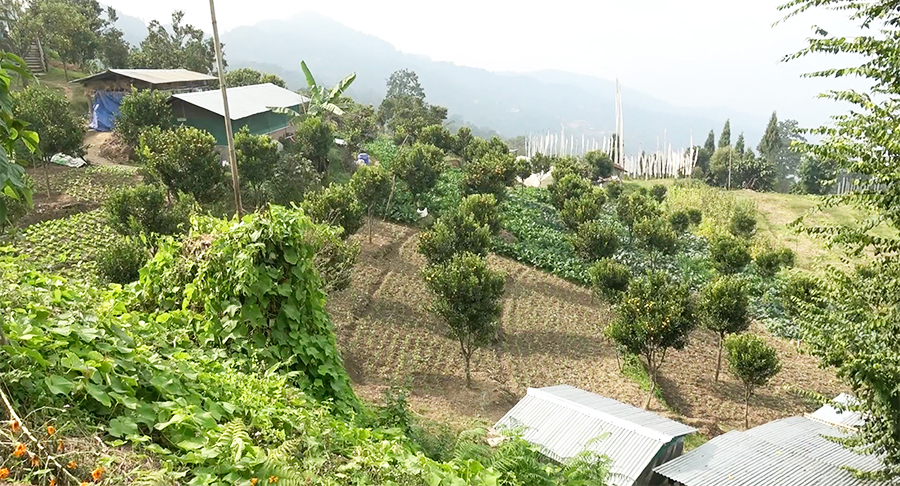
Two years after its establishment, the organic agriculture hub in Tsirang’s Mendrelgang Gewog is thriving well. Using locally available raw materials, it produces eight different types of organic manures, which are supplied within Tsirang and to nearby districts. The Tsirang District Administration inaugurated the organic agriculture hub in December 2022 as part of the national day build-up programme.
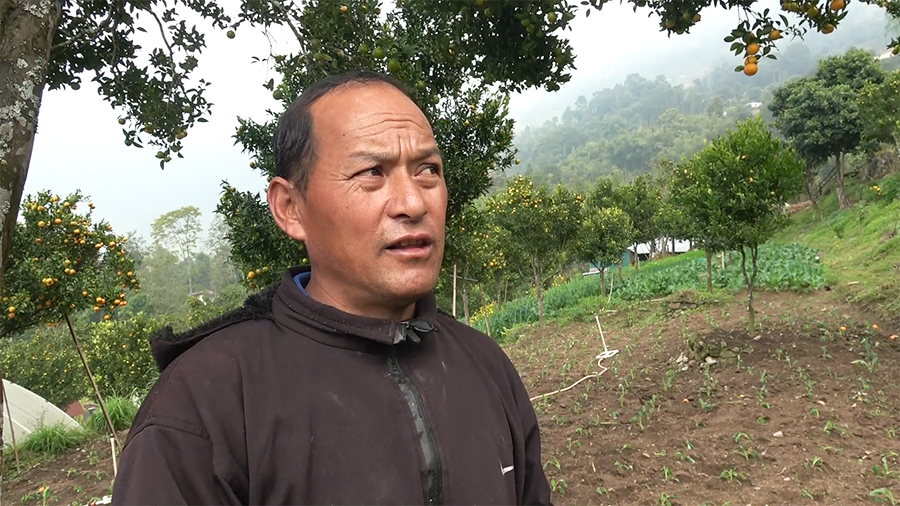 The organic agriculture hub is established on private land in Riserbu Chiwog. Phurba Moktan, the landowner, and a progressive farmer operates the hub.
The organic agriculture hub is established on private land in Riserbu Chiwog. Phurba Moktan, the landowner, and a progressive farmer operates the hub.
One of the key organic manures the hub produces is vermicompost. It is made using earthworms, cow dung, and banana trunks.
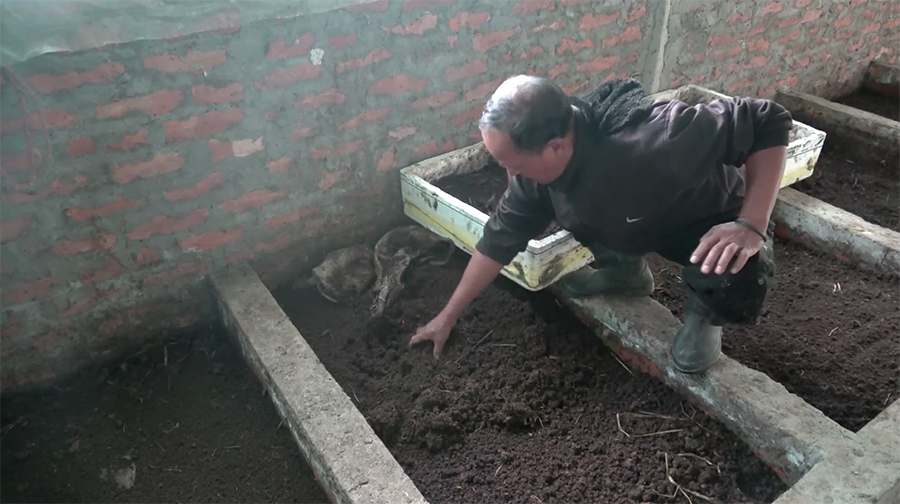 Phurba Moktan is checking out the vermicompost plant to see if it is ready for market.
Phurba Moktan is checking out the vermicompost plant to see if it is ready for market.
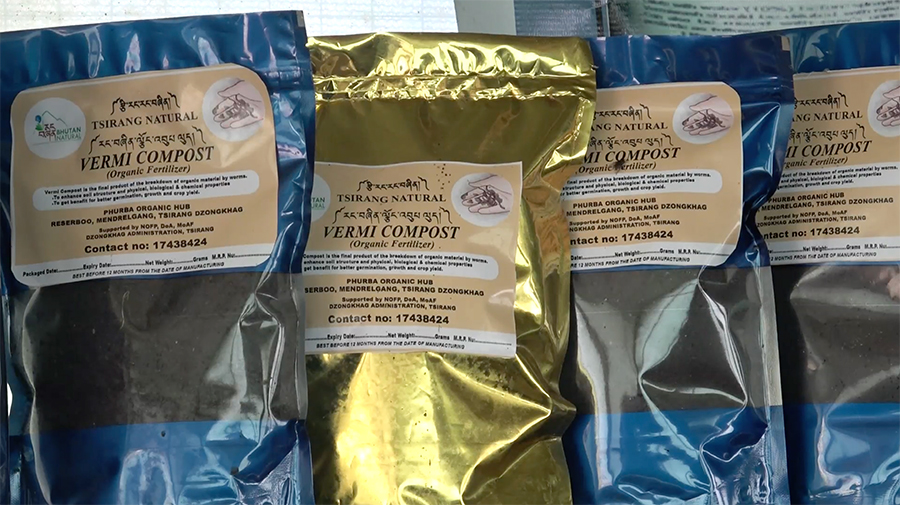 Apart from personal use on his organic vegetable farm and mandarin orchard spanning over three acres, he sells the surplus vermicompost and other organic manures.
Apart from personal use on his organic vegetable farm and mandarin orchard spanning over three acres, he sells the surplus vermicompost and other organic manures.
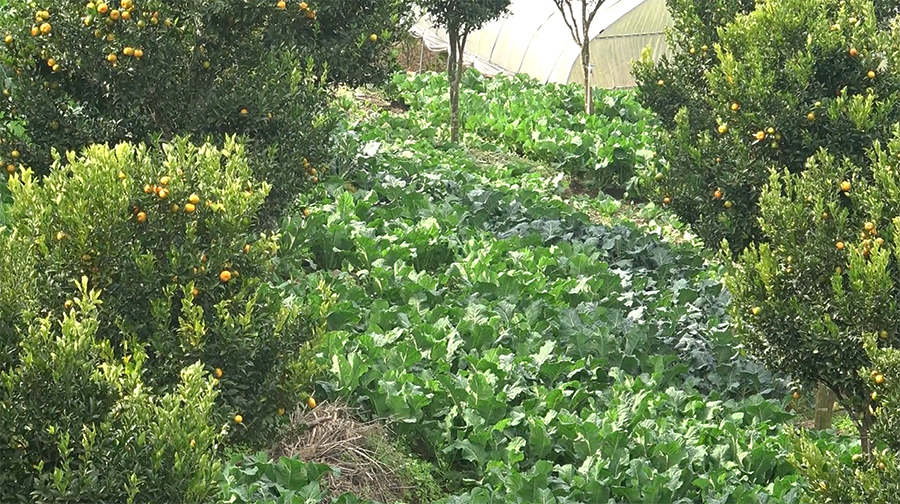 Phurba sold over 2,500 kilograms of vermicompost within Tsirang and a few nearby districts. A kilogramme of vermicompost fetches him Nu 45.
Phurba sold over 2,500 kilograms of vermicompost within Tsirang and a few nearby districts. A kilogramme of vermicompost fetches him Nu 45.
“There is no dearth of market for vermicompost. I only have to focus on quality production. Vermicompost from the bordering Indian towns are available in the markets at Nu 20 to 30. But customers say vermicompost produced here is of superior quality and are placing orders regularly.”
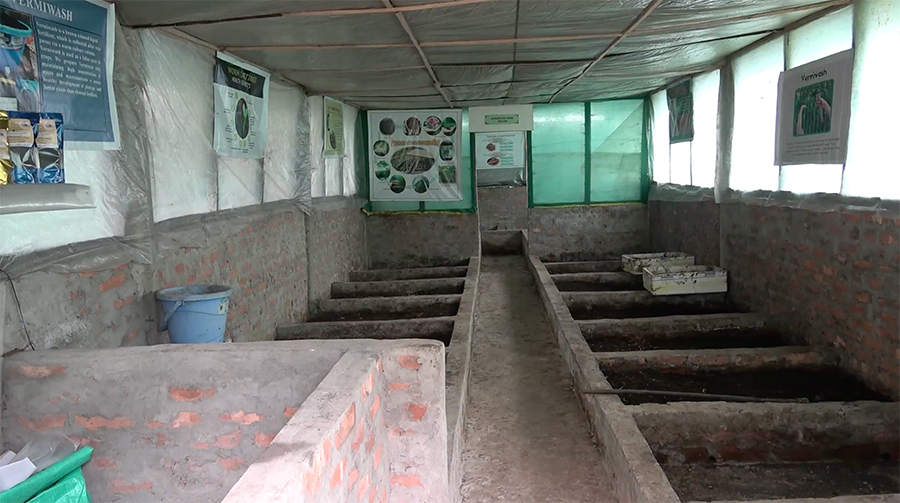 The organic hub also houses a vermiculture unit, where worms are raised to compost organic waste and improve soil quality.
The organic hub also houses a vermiculture unit, where worms are raised to compost organic waste and improve soil quality.
It has three species of worms. Phurba has sold over 30 kilogrammes of worms for Nu 3,000 per kilogramme.
“It is difficult to produce more worms in winter but worms multiply easily during summer. While private individuals haven’t placed orders so far some government agencies have been buying them. Some government offices in Trongsa, the College of Natural Resources in Punakha, and Sarpang have bought worms from the unit.”
The organic hub also produces bio-enzyme, a natural manure and pesticide made using citrus fruit drops available in his mandarin orchard.
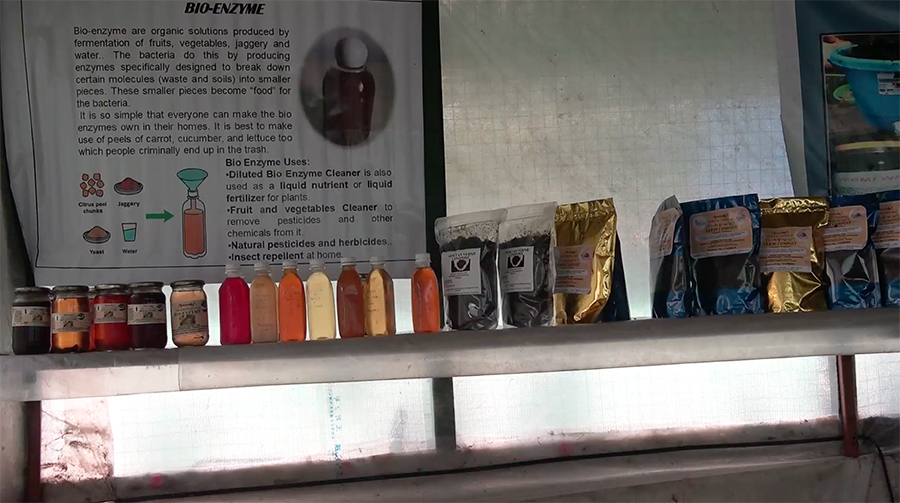 “We have to mix citrus fruit drops with sugar and yeast and then store it in large containers for at least six months. We can use it as both manure and pesticide in our farms and fruit orchards. It improves mandarin production in the following years and also helps reduce citrus fruit dropping.”
“We have to mix citrus fruit drops with sugar and yeast and then store it in large containers for at least six months. We can use it as both manure and pesticide in our farms and fruit orchards. It improves mandarin production in the following years and also helps reduce citrus fruit dropping.”
With his extensive experience in producing organic manure, Phurba encourages fellow farmers to switch from imported chemical fertilisers to organic manure for better soil health and sustainability.
His organic hub also serves as an educational centre, hosting researchers and aspiring organic farmers. Two student groups from the College of Natural Resources in Punakha have already visited the hub.
Phurba believes that the continued support from the district administration will help farmers in Tsirang and throughout the country contribute to realizing the national goal of becoming a 100 per cent organic nation.
Pema Tshewang, Tsirang
Edited by Phub Gyem









